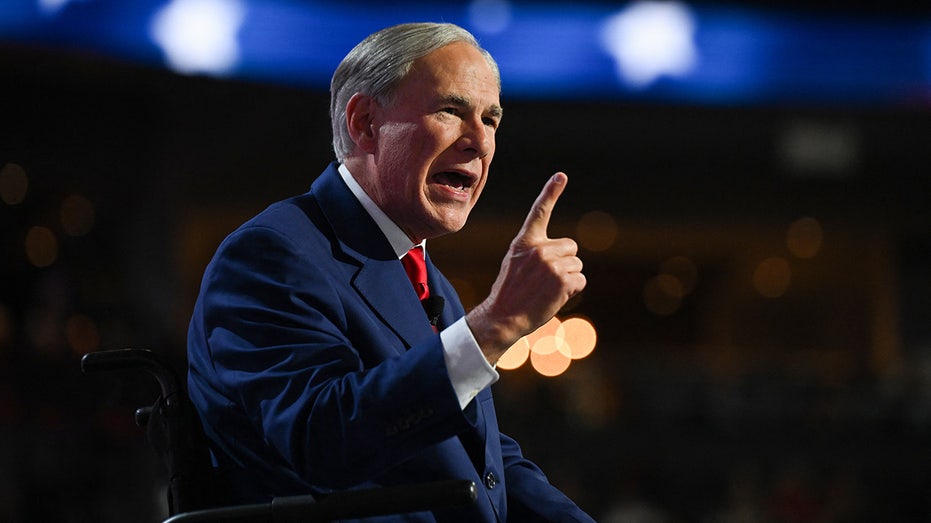A-list celebrity endorsements boomerang on Harris, Democrats
Democrats are questioning their steady reliance on A-list celebrity endorsements after a brutal election loss by Vice President Harris that has triggered existential questions within the party about whether it’s fallen out of touch with working-class voters. Harris had a number of policies intended to lift up working-class Americans, from her embrace of the child tax credit,...

Democrats are questioning their steady reliance on A-list celebrity endorsements after a brutal election loss by Vice President Harris that has triggered existential questions within the party about whether it’s fallen out of touch with working-class voters.
Harris had a number of policies intended to lift up working-class Americans, from her embrace of the child tax credit, to proposals to make homes more affordable and to go after price gouging by corporations.
But her campaign also had a heavy dose of glitz, from Taylor Swift’s endorsement to an appearance in the closing days of the campaign by Beyoncé, whose 2016 hit “Freedom” was used as an unofficial theme song throughout Harris's White House bid.
Other celebs backing Harris included Bruce Springsteen, Jennifer Lopez, George Clooney, Jon Bon Jovi and Cardi B.
In the end, none of that mattered. Harris lost every single swing state and saw former President Trump gain on Democrats in blue states. Washington was the only state in the union that moved toward Harris compared to the 2020 presidential contest. Trump appeared to see some of his biggest gains in California, where votes are still being counted, and in New York and New Jersey, Springsteen’s home turf.
After the devastating losses, a number of Democrats said the party needs to move on from its fascination with Hollywood and A-list celebs — along with the idea that those endorsements are helping the party.
“Somehow we think if Beyoncé is on stage, that will solve all our problems,” one Democratic strategist said.
“What people don't realize is that it actually makes it worse. It reinforces this perception that we are the party of elites, that we don't understand what working class folks are going through,” the source said.
“Trump's stance of being against elites, and his supporters are not elitists and fighting against elitists — that messaging came out of his campaign,” said Jennifer Brubaker, an associate professor in the communications department at the University of North Carolina Wilmington.
“And now you have Harris's campaign, which is tied to these celebrities who are, in fact, often thought to be elitists themselves. So really it just reinforced much of [Trump's] message in that regard," the "Celebrity and the American Political Process: Integrated Marketing Communication” author said.
While Sen. Bernie Sanders (I-Vt.) didn’t blame celebrity endorsements for eroding support for Democrats among working-class voters, he said the party has a definitive problem.
“It should come as no great surprise that a Democratic Party which has abandoned working class people would find that the working class has abandoned them,” Sanders said in a statement about the results of Tuesday’s election.
Ahead of Election Day, Harris's campaign had defended turning to Hollywood for a star-studded boost. The celebrity surrogates, the campaign said in statement, serve as “trusted voices for millions of Americans, who listen to their music, follow them on social media, or otherwise are inspired by them.”
The thinking from Harris's camp, the campaign said at the time, was that by celebs “using their voices to lay out the stakes of this election, it will further encourage and mobilize people to go vote.”
Stephen A. Smith said this week on his eponymous podcast that voters often feel disconnected to Hollywood heavyweights who speak out about politics.
“In the end, celebrities who are worth hundreds of millions if not billions — who most American citizens feel are incredibly detached from their way of life and their quality of life — were not going to get away in guilting them into doing something different than what their experience says is going on and what they should do about it,” the ESPN personality said, after watching a clip of legendary TV talk show host Oprah Winfrey delivering remarks at a Harris rally.
In a post this week on social platform X, Mark Penn, who served as an adviser on Hillary Clinton's 2008 presidential campaign, said, “Voters don't listen to Hollywood celebrities when it comes to voting.”
“Most voters see Hollywood as great for entertaining but as far removed from their concerns when it comes to voting,” Penn said.
Some Democrats argued that the use of celebrities isn't about gaining support. It's about garnering attention.
“Celebrity engagement is an advantage for Democrats, but those endorsements don't move votes. They just move eyeballs,” Democratic strategist Jamal Simmons said.
President-elect Trump, a famous face himself for the last 40 years or so, knows the value of a celebrity.
But the big names he leaned on did not represent the A-list. The celebrities he invited to the Republican National Convention or to the campaign trail, from Hulk Hogan to Kid Rock, also didn’t seem to represent the elite.
Democrats at times mocked those celebrity endorsements online, arguing it was has-beens and fringe celebs who were backing Trump. Yet in the end, that might have played to Trump’s advantage at the ballot box.
His final endorsement, on Monday night, came from the podcaster Joe Rogan, who is largely followed by men, the demographic Trump most targeted.
“We mocked the other side and said, ‘We have Bruce and Jon Bon Jovi, and Lady Gaga and Pink. And who do you have? Hulk Hogan and Kid Rock?' And we think that appeals to voters,” the Democratic strategist said.
“It's a joke,” the source added.
Star power can help draw attention and give a glittery boost to fundraising numbers — but it can also backfire when voters get the sense that candidates are hobnobbing with and relying on red carpet regulars as they drive home campaign promises geared toward everyday Americans.
The results of the election may leave Democrats rethinking their plans for 2028.
That said, celebrity endorsements are unlikely to disappear.
High-profile entertainers, for one thing, are unlikely to stay silent during election season — or during Trump’s presidency.
While for years many performers opted not to take the chance of alienating their fanbases by speaking out about politics, Trump's rise in 2016 — and much of Hollywood's opposition to him — marked a significant shift in the showbiz world.
Yet while movie stars, singing sensations and other heavy hitters are unlikely to stop getting political, experts say campaigns could rewrite the script on the best way to optimize support from the “out of touch” rich and famous. Going forward, candidates could potentially deploy celebrities in more strategic ways such as through get-out-the-vote efforts — focusing on the issues that are top of mind to voters, rather than risk being blinded by the limelight.
The first strategist echoed that sentiment, pointing to Barack Obama's 2008 election eve rally when thousands of supporters came to see him — and not an A-lister.
“That should be the gold standard,” the strategist said. “Let's get back to our roots.”



